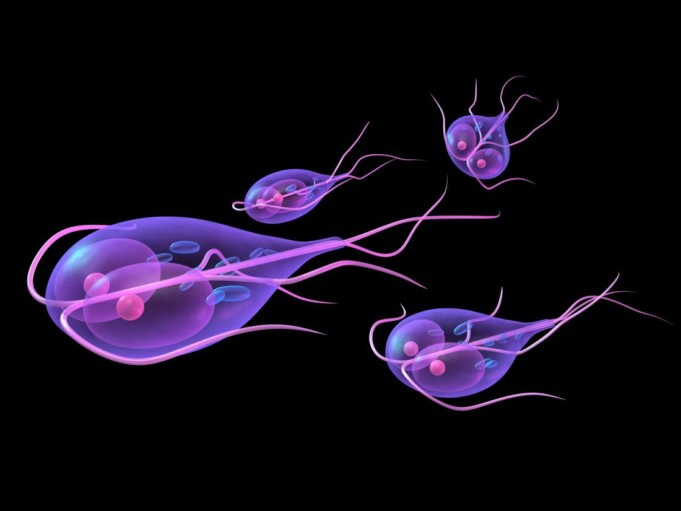Giardiasis is an infection that is caused by a microscopic parasite known as “Giardia lamblia” in the intestine. It can be contracted when a healthy person comes in contact with an infected person.
One can also contract giardiasis by ingesting foods or water that are contaminated. Pet cats and dogs are also known to be carriers of this infection. According to the CDC (Centers for Disease Control and Prevention, the condition can be discovered anywhere on the globe.
Nonetheless, it is more prevalent in overcrowded places or developing countries with poor sanitary conditions and bad drainage control.
What can cause giardiasis?
Giardia lamblia can be found in the feces of animal and human. The parasites can also survive in water, food, and soil that are contaminated. They are known to also thrive outside a host for a long period of time and a person can get infected once the parasites find their way into the body.
A common way of getting infected is by drinking water that contains the parasite. Contamination can happen in the spas, swimming pools, and other bodies of water such as lakes and rivers. Sources of contamination may include agricultural runoff, animal feces, and diapers.
Getting infected through food is less common simply because the parasite can survive heat. Foods rinsed with water that’s contaminated with the parasite can equally allow giardia lamblia to spread into the body.
It may also interest you to know that Giardiasis can also be contracted through personal contact. For instance, the infection can be passed from one person to another through unprotected anal sex.
Other common ways of getting infected may include diaper changing or contracting the parasite while working in a day care center. Kids are at a higher risk of being infected because they are likely to encounter fecal matters with their diapers on or during potty training.
The symptoms of giardiasis may include the following:
While some people can go around with the parasite without displaying any symptoms of the disease, other manifest the symptoms in a week or two after being exposed to the parasite. Some known symptoms include;
- Nausea
- Fatigue
- Loss of appetite
- Diarrhea or greasy feces
- Vomiting
- Weight loss
- Abdominal cramps
- Bloating
- Headaches or migraine
- Excess gas
How is giardiasis diagnosed?
Tests carried out may require stool samples to be able to tell if one has the parasite. The test is done by a technician and more than one stool samples may be required during treatment. An enteroscopy may also be performed by your doctor.
An enteroscopy is done by running a flexible tube down a patient’s throat and into the small intestine. This is to allow your doctor access into the digestive tract for better examination and to also get tissue samples.
Treatments for giardiasis?
Giardiasis usually clears up on its own in most cases. However, medications are prescribed by your doctor if the infection is severe. Antiparasitic drugs are also recommended by most doctors, instead of leaving the infection clear up on its own.
Certain antibiotics are also used in the treatment of giardiasis:
- Tinidazole: This is a very effective drug used to treat giardiasis in one single dose.
- Metronidazole: This is an antibiotic that’s taken for 5 to 7 days. It can leave a metallic taste in the mouth and also cause nausea but very effective in the treatment of giardiasis.
- Nitazoxanide: This a better option for kids since it comes in syrup form. It also needs to be taken for 3 days.
- Paromomycin: This drug has a lower chance of causing any defects in births than other drugs used in treating giardiasis. Nevertheless, it is important that expecting mothers should wait till after delivery before commencing medications. This drug is administered in 3 doses over the course of 5 to 10 days.
Complications are associated with giardiasis:
Some of the complications associated with giardiasis can include loss of weight and dehydration due to diarrhea. The infection may also lead to can lactose intolerance in some individuals.
Children under the age of 5 stand a higher risk of experiencing malnutrition which can deter their mental and physical development.
How can giardiasis be prevented?
We need to understand that there are some things we have no power over. Giardiasis can’t be prevented but we can always minimize the risk of contracting it and this can be done by having our hands washed thoroughly, especially if your work place exposes you to germs.
Streams, ponds, rivers and other bodies of water can be sources of giardiasis. Ensure not to swallow the water when swimming. Unless the water is boiled, filtered or treated with iodine solution, avoid drinking surface water. Be sure to carry clean bottled water when going camping or hiking.
Avoid drinking tap water in areas where giardiasis has been reported. It is also advised to avoid using tap water to brush your teeth. Make sure your food is properly cooked.
Be very careful are your sexual activities and ensure your partner isn’t already infected. Make use of protections such as condoms to reduce your chances of contracting the disease.
What is the long-term outlook for patients with giardiasis?
Giardiasis infections commonly last for about six to eight weeks, but complications such as lactose intolerance may persist after the infection is cleared up.
Tell us what you think. Are there other unknown treatments of giardiasis you’d like to share with us? Leave your thoughts in the comments below.












